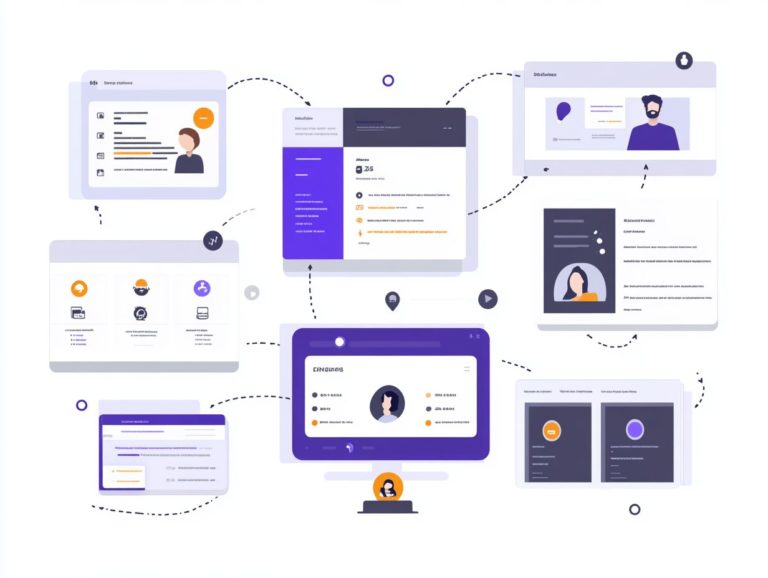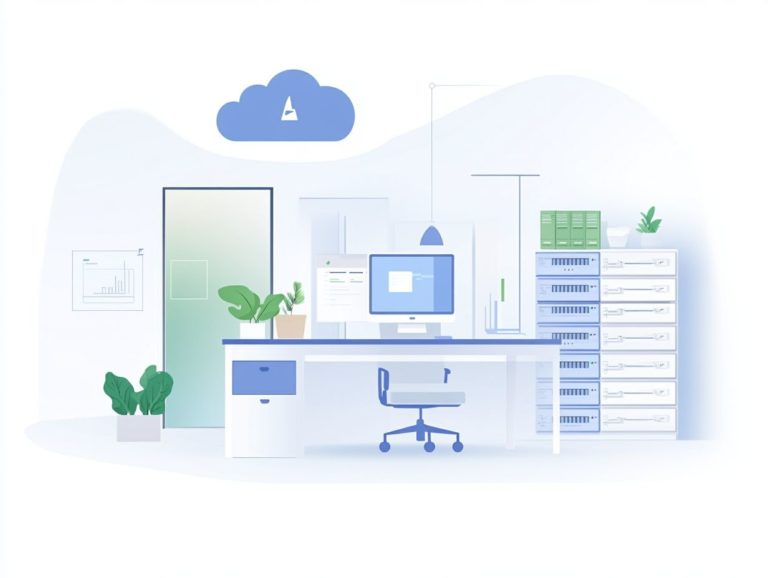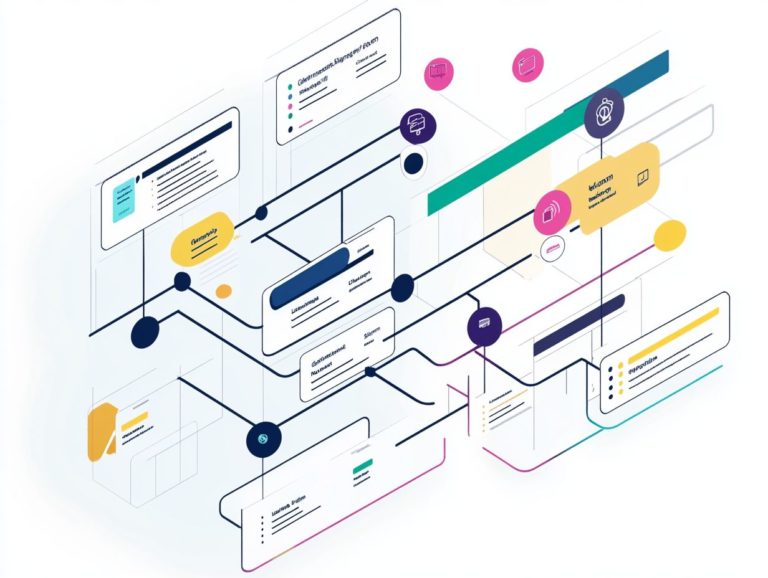Comparing CRM Features: HubSpot vs Salesforce
In today s competitive business landscape, Customer Relationship Management (CRM), a tool to manage customer interactions, systems are essential for streamlining your processes and enhancing customer engagement.
This article presents a comprehensive comparison of two industry giants HubSpot and Salesforce. You ll explore their key features, pricing plans, user-friendliness, customization options, and customer support.
With real-life success stories included, you ll gain valuable insights to guide your decision in choosing the right CRM for your business needs. Which platform will be your perfect fit? Let s find out!
Contents
- Key Takeaways:
- Overview of HubSpot and Salesforce
- Comparing Pricing and Plans
- User-Friendliness and Interface
- Customization and Integration Options
- Customer Support and Resources
- Real-Life Examples and Case Studies
- Frequently Asked Questions
- What are the key differences between HubSpot and Salesforce CRM features?
- Which CRM features are offered by both HubSpot and Salesforce?
- Can I integrate other tools and apps with both HubSpot and Salesforce CRMs?
- Do HubSpot and Salesforce offer mobile capabilities for their CRM features?
- Which platform offers better customer support for their customer relationship management tools?
- Is one CRM platform better than the other overall?
Key Takeaways:
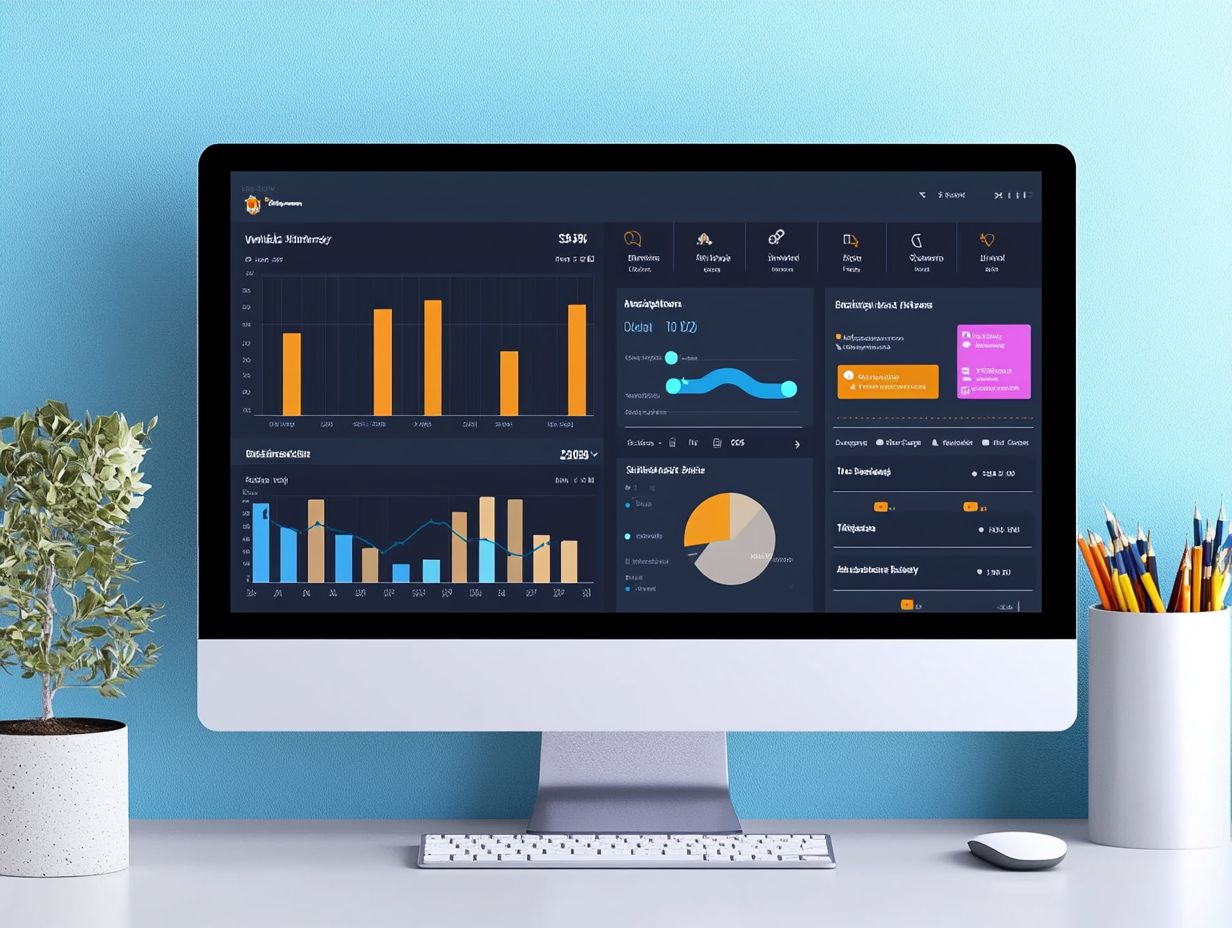
HubSpot and Salesforce are two popular CRM options with unique features and functionality. When you check out the ultimate CRM comparison, consider the cost vs value for money to find the best fit for your budget and needs.
User-friendliness and interface are important factors to consider, as they can impact the ease of use and navigation for your team.
What is CRM and Why is it Important?
Customer Relationship Management (CRM) is your ticket to mastering the art of interaction with current and potential customers. It plays a pivotal role in your business success.
This comprehensive approach gives the power to small businesses to refine their sales processes and elevate customer support through enhanced communication channels. Ultimately, it helps build relationships that help your business grow.
When you implement a robust CRM system, you gain important insights into customer behaviors and preferences, helping you tailor your marketing efforts precisely.
This level of personalization not only makes your customers feel truly valued but also cultivates loyalty an essential ingredient for small businesses navigating a crowded market.
A well-designed CRM can help streamline various business processes. It fosters better collaboration among your teams and enables quicker responses to customer inquiries.
In the end, an effective CRM strategy nurtures a customer-centric culture, setting the stage for sustainable growth and a competitive edge in your industry.
Overview of HubSpot and Salesforce
HubSpot and Salesforce stand out as premier Customer Relationship Management (CRM) platforms. For those considering alternatives, a detailed Salesforce vs Nimble CRM comparison can provide insights into features that cater to various business needs, particularly for small and medium-sized businesses (SMBs).
If you lean towards a marketing-focused approach, HubSpot presents an intuitive platform complemented by a user-friendly automation builder. On the other hand, if your priority is robust sales automation and extensive customization options, Salesforce delivers a comprehensive suite that can adapt to your unique objectives.
Both platforms are excellent choices; it simply depends on what aligns best with your specific business goals.
Key Features and Functionality
The key features and functionalities of CRM systems like lead management, marketing automation, and sales automation are essential for streamlining your business processes and enhancing customer engagement.
Platforms such as HubSpot and Salesforce offer robust reporting tools and analytics capabilities, giving you the power to make data-driven decisions.
They also provide integration options with third-party applications, allowing you to expand your operational efficiency seamlessly.
These dynamic solutions enable you to customize your strategies, utilizing tools that track customer interactions and identify areas for improvement.
With lead management features, you can effectively nurture prospects through targeted communication strategies tailored specifically to your audience segments.
Automation capabilities handle repetitive tasks effortlessly, reducing human errors and freeing up valuable time for you and your team.
By leveraging advanced reporting features, you can closely monitor your performance metrics, leading to improved forecasting and stronger customer relationships.
Ultimately, these tools drive long-term success and growth for your organization.
Comparing Pricing and Plans
In your pursuit of a CRM solution, grasping the intricacies of pricing structures and available plans is vital for making an informed decision that truly reflects cost-effectiveness and value for money.
Both HubSpot and Salesforce present scalable options, each with its own array of pricing tiers and features. It’s crucial for you to undertake a comprehensive cost analysis tailored to your unique setup and implementation requirements, including comparing customer support features across CRMs.
This diligence will give you the power to choose a solution that best meets your business needs.
Cost Analysis and Value for Money
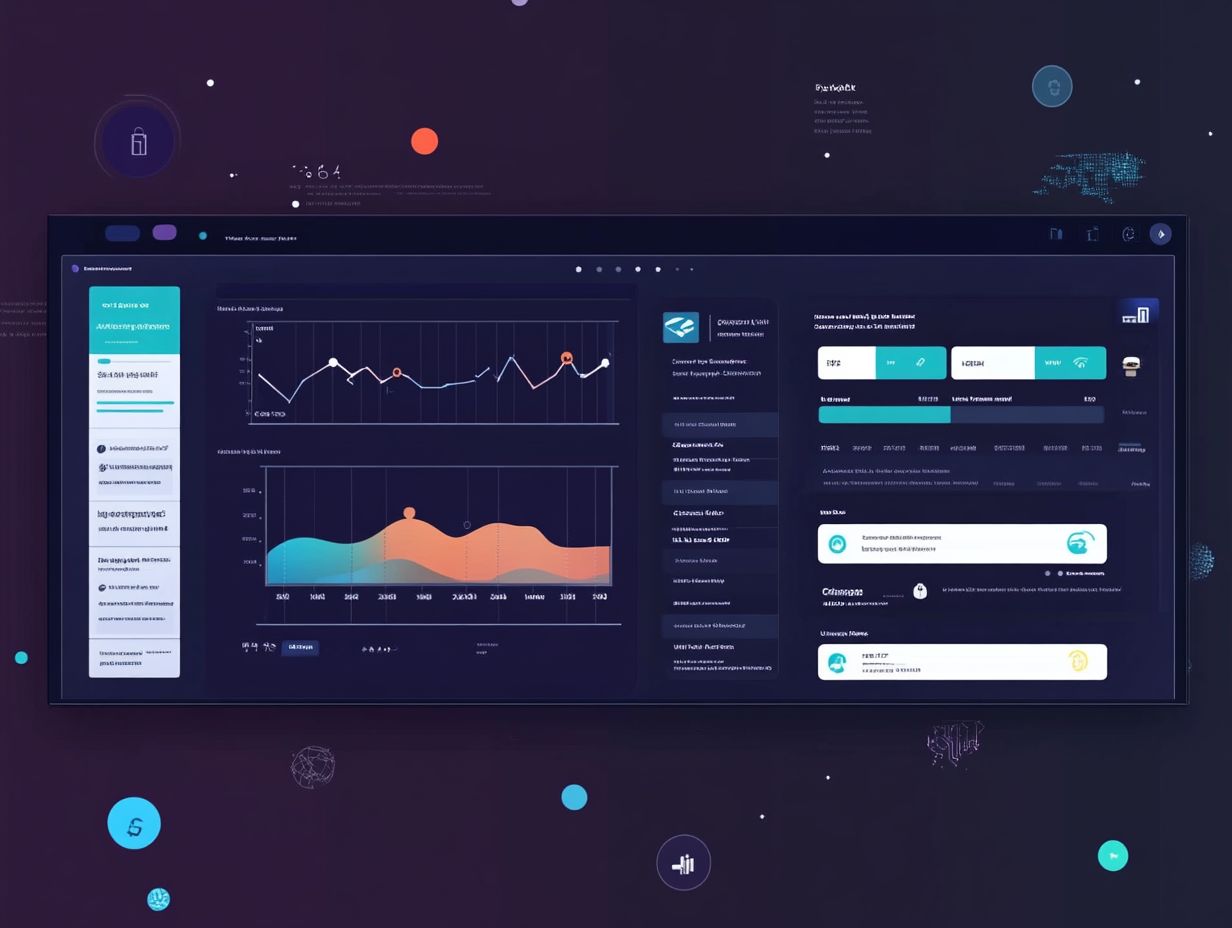
Conducting a cost analysis is essential for businesses looking to grasp the true value for money when weighing options between HubSpot and Salesforce. By evaluating the pricing structures and features included in each plan, you can make informed decisions that not only meet your immediate needs but also support long-term growth through effective Customer Relationship Management (CRM) use.
A careful assessment of costs versus benefits will reveal whether your investment aligns with your specific business goals. Each platform provides unique self-help resources, such as comparison tools and pricing calculators, allowing you to analyze your options with confidence.
HubSpot boasts a comprehensive knowledge base and customer support guides designed to help you map features to your operational requirements. Similarly, Salesforce offers extensive documentation and community forums that enhance your understanding of its pricing tiers.
These resources are invaluable for achieving optimal feature alignment without overspending. They ultimately refine your strategic approach to CRM implementation.
User-Friendliness and Interface
User-friendliness and interface design are crucial in CRM systems. These factors significantly influence how effectively your teams can navigate and use the platform.
HubSpot and Salesforce both enhance your experience with unique features, ensuring ease of use accommodates varying levels of technical expertise. It’s no surprise they consistently receive positive feedback regarding navigation and overall user experience.
Ease of use is a pivotal factor when assessing CRM platforms, shaping your ability to navigate through various features with ease. HubSpot s user-friendly interface and intuitive design allow you to dive right in, while Salesforce complements this with robust support and training services to help you master its system.
HubSpot s clean layout and customizable dashboards empower you to tailor your view to meet specific business needs, ensuring that essential information is always just a click away.
Salesforce offers extensive customer support options, including a comprehensive help center, live chat, and community forums, making quick problem resolution a breeze. They also provide targeted training programs designed to equip you with the knowledge you need, allowing you to navigate the platform’s intricacies confidently.
Together, these elements create a more seamless CRM experience, fostering higher engagement and productivity for you and your team.
Customization and Integration Options
When considering a CRM system, customization and integration options are essential for businesses aiming to enhance their unique workflows and processes.
HubSpot provides a range of flexible customization features and seamless integration capabilities, making it an attractive choice. On the other hand, Salesforce excels with its robust third-party integrations and extensive project management tools. To make an informed decision, consider the key features to compare in CRM software, which will help you tailor the system precisely to your complex requirements.
Flexibility and Compatibility with Other Tools
The flexibility of a CRM system profoundly influences its compatibility with the diverse array of tools and applications you utilize in your business. Both HubSpot and Salesforce offer extensive integration capabilities with third-party applications, allowing seamless data analysis and sales forecasting that significantly enhance your overall business efficiency.
These CRM systems allow information to flow seamlessly between platforms, enabling your teams to make data-driven decisions with increased confidence.
You can easily connect marketing automation tools, social media platforms, and analytics software, providing a consolidated view of customer interactions and workforce performance.
This interconnected ecosystem not only streamlines your processes but also improves the accuracy of your sales forecasts. Having the ability to tailor integrations to meet your specific business needs equips your organization with a competitive advantage, enabling you to adapt swiftly and effectively to market changes.
Customer Support and Resources
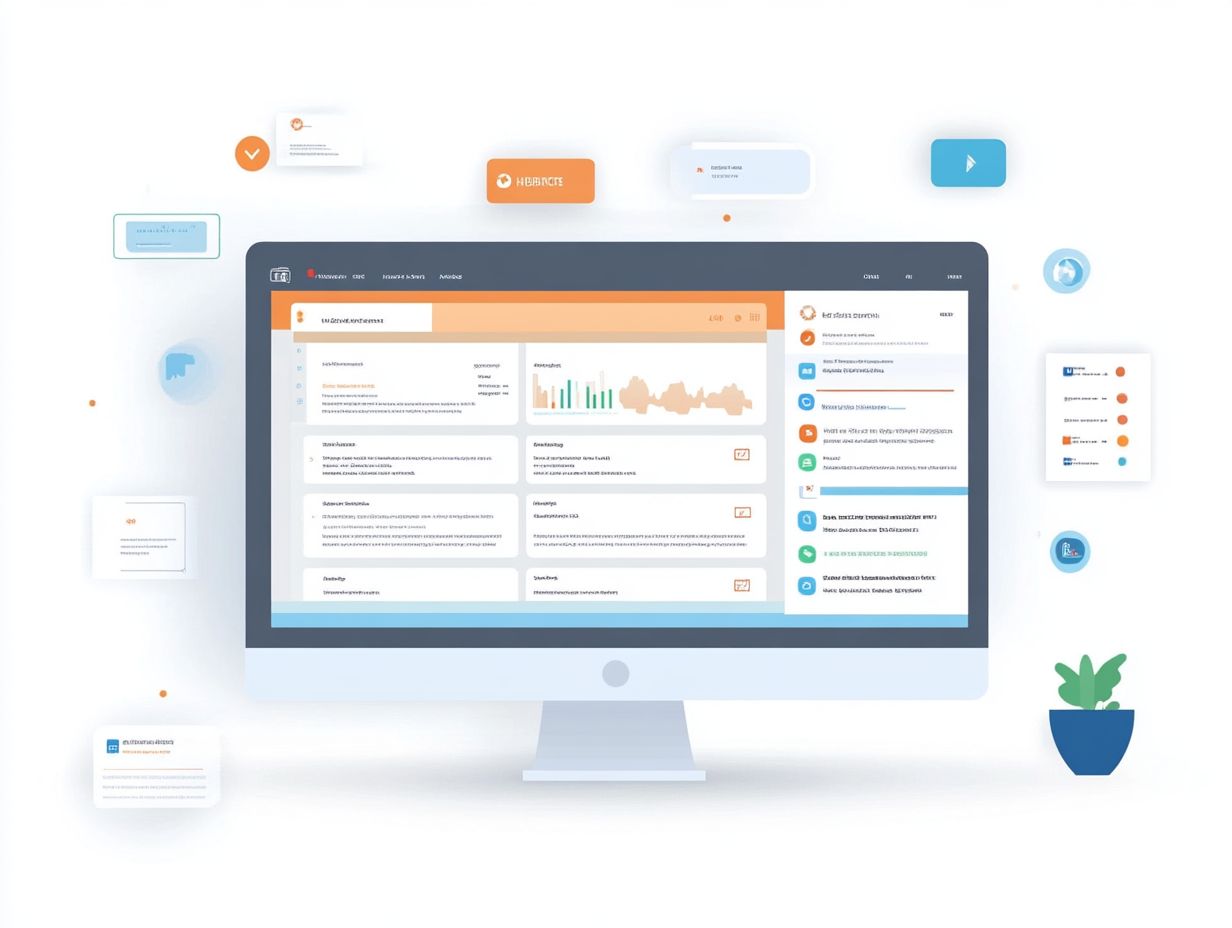
Customer support and the resources at your disposal can profoundly impact your experience with Customer Relationship Management (CRM) software. They shape your ability to navigate the system effectively.
Both HubSpot and Salesforce take pride in offering top-tier customer support, a wealth of self-help resources, and comprehensive training services designed to empower you to maximize the capabilities of your CRM. For a deeper understanding of their features, check out the comparison in Salesforce vs Microsoft Dynamics.
Availability and Quality of Support
The availability and quality of customer support are crucial for you to fully harness a CRM system’s features. Both HubSpot and Salesforce earn high marks in reviews from users for their customer support teams, offering responsive assistance and comprehensive training services. For a detailed look at how these platforms stack up, check out HubSpot vs Keap: A Comprehensive Comparison.
Each platform stands out with a unique blend of interaction and resource access. This significantly enhances your experience.
You ll often find users raving about HubSpot’s intuitive self-help portal, filled with informative articles, video tutorials, and vibrant community forums that encourage peer-to-peer assistance.
Salesforce excels with its comprehensive training sessions and webinars, allowing you to delve deeper into the system’s functionalities. This commitment to customer education boosts your proficiency and cultivates a sense of community, making both platforms highly esteemed in the CRM landscape for their robust support structures.
Real-Life Examples and Case Studies
Real-life examples and case studies provide invaluable insights into how businesses effectively leverage CRM systems to achieve their objectives.
These exciting success stories showcase how tools like HubSpot and Salesforce transform businesses. By examining these use cases, you can see how companies harness customer feedback and analytics to drive substantial growth and enhance their customer engagement strategies.
Success Stories and Use Cases
Success stories and reviews from users act as compelling testimonials for the transformative power of CRM platforms in driving business success. By looking into these narratives, you can uncover valuable insights into how marketing tools and sales automation from HubSpot and Salesforce have revolutionized customer engagement and operational efficiency.
For example, one small business experienced an astonishing 40% increase in lead conversion rates after integrating HubSpot’s automation features, enabling them to personalize customer interactions on a larger scale.
Another organization revealed that Salesforce s advanced analytics allowed them to pinpoint critical areas for improvement, resulting in a significant 30% boost in customer retention.
These instances vividly illustrate the substantial impact that customized marketing strategies and streamlined sales processes can have on your company’s bottom line, highlighting the tangible benefits of investing in robust CRM solutions.
Frequently Asked Questions
What are the key differences between HubSpot and Salesforce CRM features?
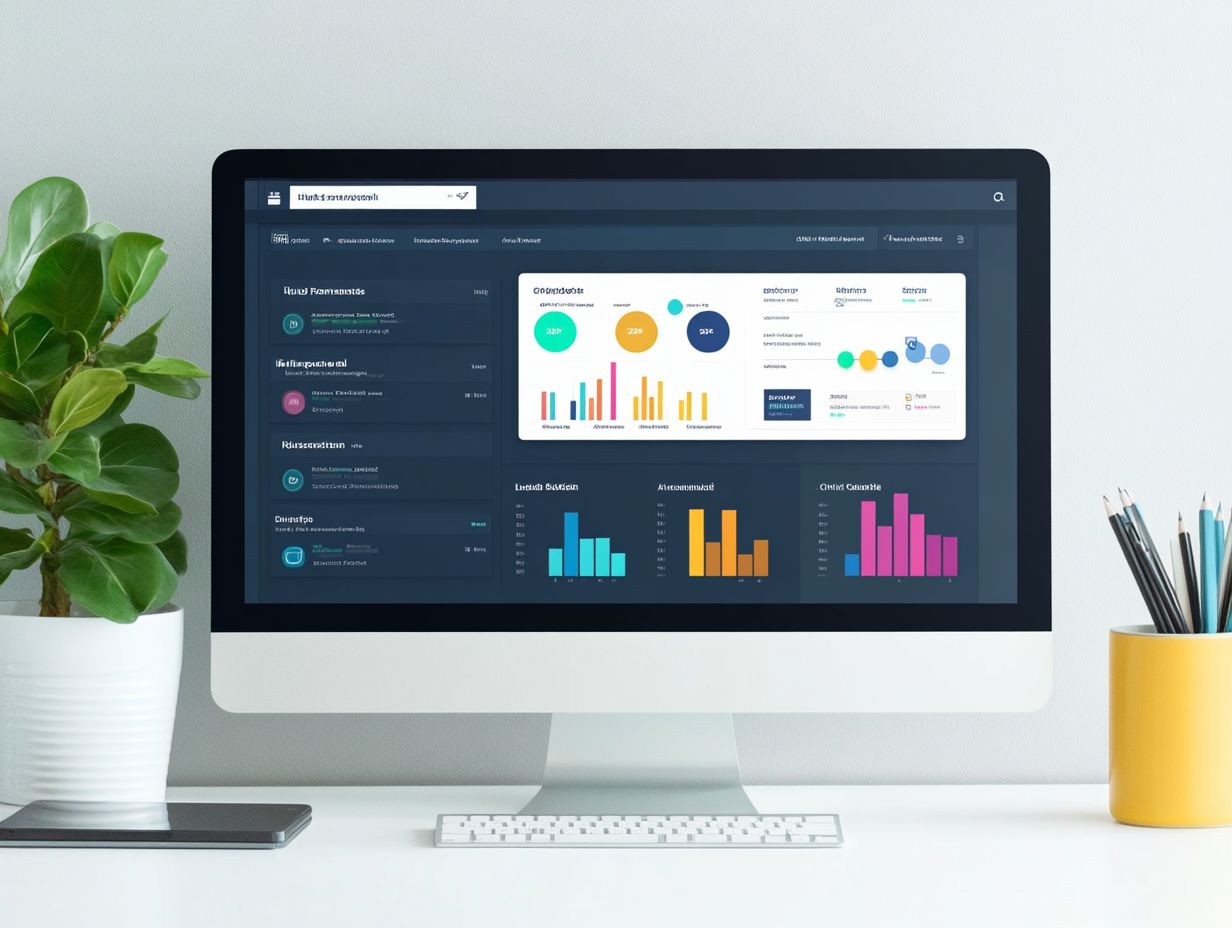
The main differences between HubSpot and Salesforce CRM features include pricing structure, target audience, and specific functionalities offered. For a deeper understanding of how Salesforce compares to other platforms, check out Salesforce vs SugarCRM. Salesforce is geared more towards enterprise-level businesses, while HubSpot caters to small and medium-sized businesses.
Which CRM features are offered by both HubSpot and Salesforce?
Both HubSpot and Salesforce offer core CRM features such as lead and contact management, sales and marketing automation, and customer service support. However, for a deeper understanding of how these platforms compare, check out this comparison of features to see the specific tools and capabilities that may differ between the two platforms.
Can I integrate other tools and apps with both HubSpot and Salesforce CRMs?
Yes, both platforms integrate well with other tools and apps. HubSpot offers over 300 integrations, while Salesforce has a marketplace with over 5,000 apps and integrations.
Do HubSpot and Salesforce offer mobile capabilities for their CRM features?
Yes, both platforms offer mobile capabilities for their CRM features. HubSpot has a mobile app for iOS and Android, while Salesforce offers the Salesforce1 app for iOS, Android, and Windows.
Explore these platforms today to see how they can boost your business!
Which platform offers better customer support for their customer relationship management tools?
Customer support can vary based on individual experiences. Overall, HubSpot is praised for its exceptional support with 24/7 availability and multiple channels.
Salesforce has good support options, but reaching a live representative can be challenging.
Is one CRM platform better than the other overall?
This depends on your business needs and goals. HubSpot and Salesforce each have strengths and weaknesses.
Evaluate your options carefully to choose the best fit for your objectives.

